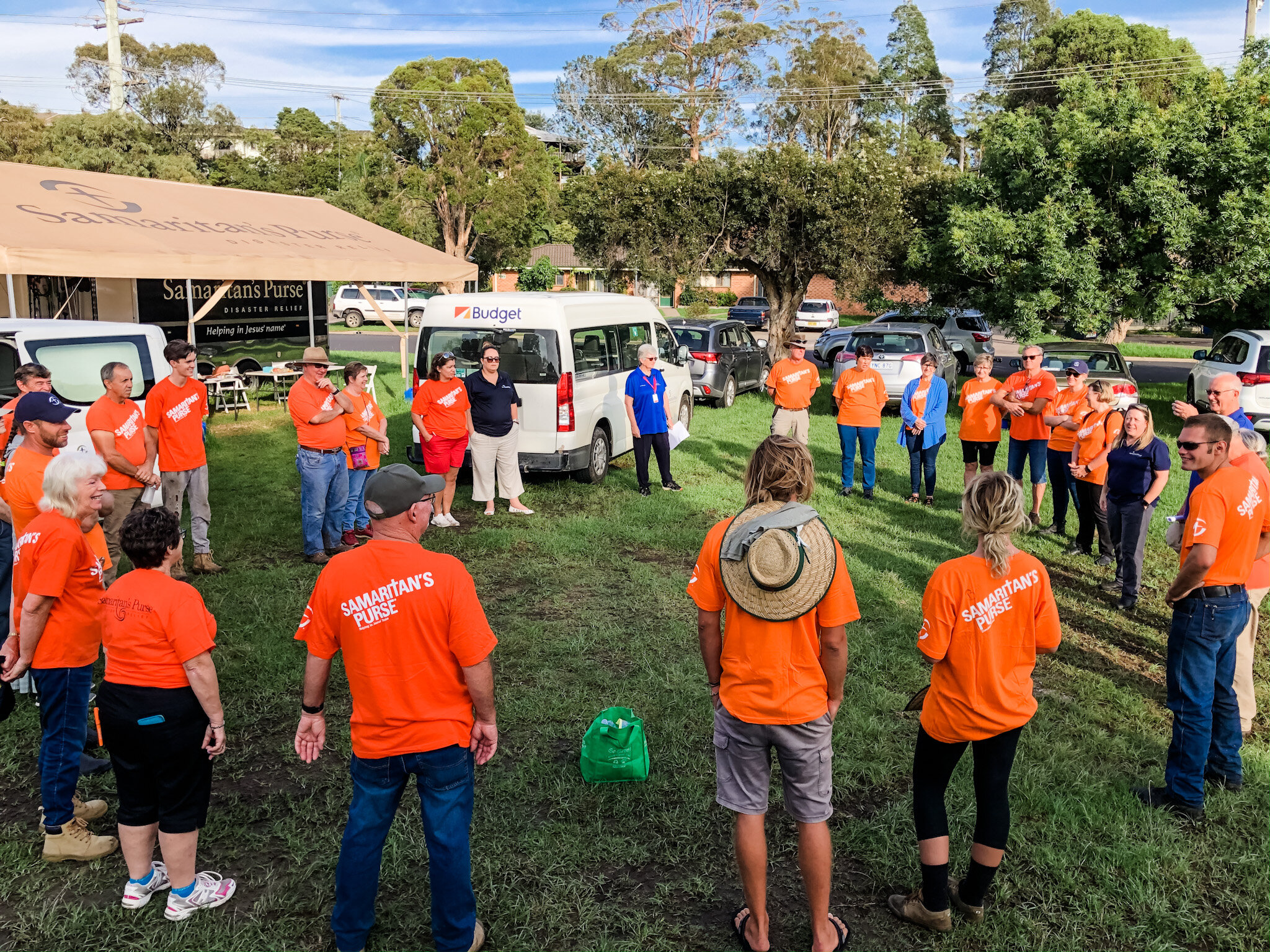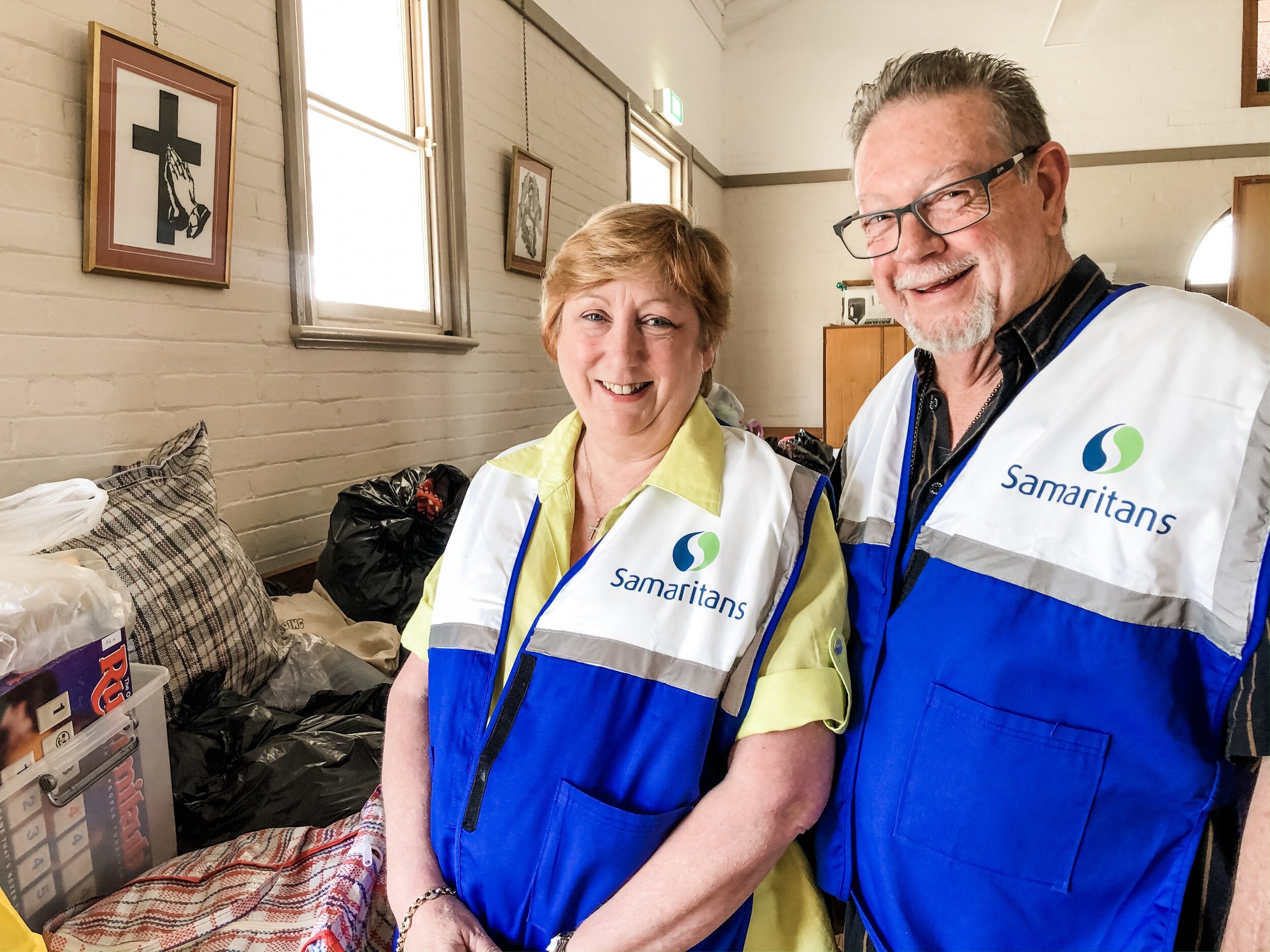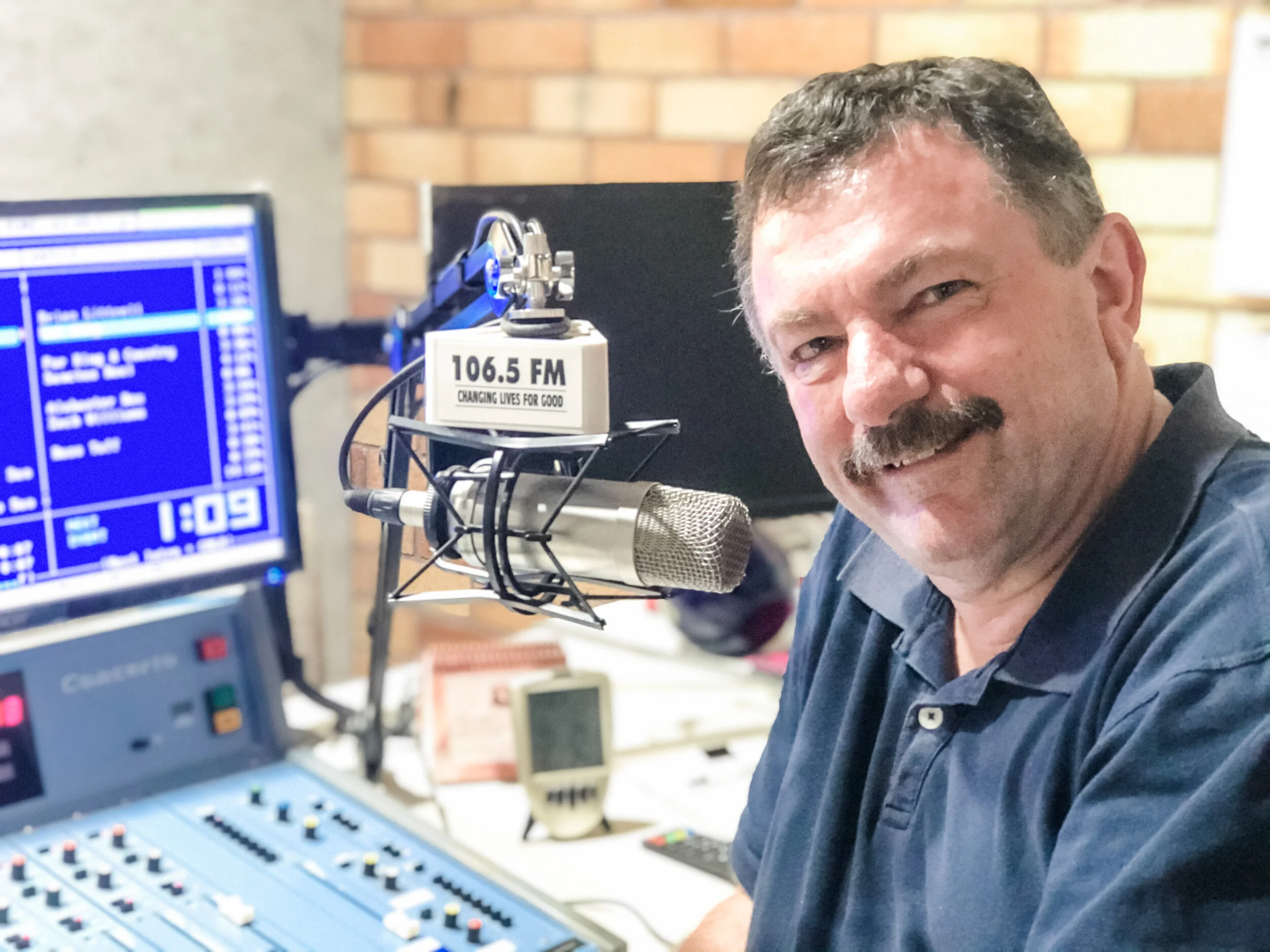Sharing Hope in Crisis
Chaplain Julie Reading stands near the Budget van with a large group of Samaritan’s Purse volunteers. Chaplains provide emotional and spiritual support to volunteers as well as to men and women impacted by natural disasters. Photo | Supplied by John Reading
John and Julie Reading of Taree step into communities devastated by disasters. As Billy Graham Rapid Response Team Chaplains they've been on the frontline to support people in the wake of numerous Australian bushfires, floods and a mass shooting in America.
What is the Billy Graham Rapid Response Team (RRT) and how did you become part of the organisation?
John: It is a ministry of trained volunteer chaplains who are deployed in the aftermath of a disaster to respond to the emotional and spiritual needs of people in crisis. Up until this year we've really only had one deployment a year since 2011 but in the last 12 months or so it's really heated up.
My service as a RRT chaplain began during my time as a BaptistCare Kularoo Gardens Chaplain, I did the training and then BaptistCare wanted to take it on as a ministry and so they were happy to release chaplains within the organisation for two weeks each year. Things changed when I retired.
In 2017 you took on the role of RRT Chaplain Co-ordinator and it propelled you into the devastation of Hurricane Harvey and a mass shooting in Sutherland Springs in Texas. What did you experience?
Thousands of homes were flooded and destroyed. It was devastating and dramatic and an impactful introduction to becoming an RRT co-ordinator. RRT teams deploy with Samaritan's Purse Disaster Relief teams that look after practical supports for communities as we look after the emotional needs of people.
In America they have thousands of volunteers and the organisations are so big that when a disaster is on the way the government asks them to be prepared to go to minister there. It's remarkable.
I was in Portland, Texas with Stewart Beveridge the RRT Manager for Australia-New Zealand in November 2017, and on the day before we were due to fly home there was a mass shooting in Sutherland Springs Baptist Church. A fellow came in and mowed down 27 people in one hit. It was a little town of 460 people with three churches. He came to the church gunning for his mother-in-law and when she wasn't there he opened fire. There were 26 people shot and killed and as one of the victims was pregnant, the death toll was 27.
Billy Graham Rapid Response Team Manager for Australia-New Zealand, Stewart Beveridge. Photo | Ainslee Dennis
Stewart and I were within a two hour drive of Sutherland Springs so we were deployed to support the community. That was a very different kettle of fish for me and a huge learning curve as I'd never seen or come across that type of trauma. We were in Texas for five weeks.
“That was a very different kettle of fish for me and a huge learning curve as I’d never seen or come across that type of trauma.”
Bushfires razed communities and wreaked havoc in NSW in 2019; how did you and Julie support people on the Mid North Coast and South Coast?
John: We were part of an amazing community clean-up supported by Samaritan's Purse volunteers and residents of Killabakh. There would have been more than 50 people and we absolutely loved how people came together to help one another.
So many people who had lost everything were so positive, even those who had no insurance were incredibly positive; with some sharing that they would rebuild and others saying they were too old to build again and would go somewhere else.
It’s a privilege to be part of the recovery process and the main job of a crisis-trained chaplain is to listen, and sometimes that means sitting and saying nothing at all. It's not an easy thing to listen.
Julie: You might be sitting with someone sifting through the ashes of their home as they talk about the precious things they hoped to find and the memories associated with it. Invariably they come to feel disappointment when they don't find what they wanted, but will say, 'I've still got the memory' because as you've sat and sifted through the ashes with them they've been able to talk through the memory, and it gives them hope and the realisation that life can go on.
I may ask, 'Would you like me to pray with you?' and most people will say yes, and during prayer most people will break down and cry. It's because of the realisation that even if they don't believe it, you believe God cares about them, and that gives them some anchor in a sea of hopelessness. Being heard validates their pain, and as you pray it validates their value as a person.
“Being heard validates their pain, and as you pray it validates their value as a person. ”
We recently returned from deployment to Bateman's Bay and worked at a property that once had a lovely whimsical garden before it was destroyed by fire.
It covered about an acre and the woman had collected all of these teapots, and she would go to Vinnies to buy pretty things and put them in the garden. She was in hospital but we knew this garden was precious to her so I spent all day washing teapots and bits of things that I could find on the ground and stacked them in part of a tank so she would be able to find them when she came home.
Some people might question why I would choose to spend a whole day cleaning things that some may regard as bits of junk, but for her, that garden and all of those things were very, very precious.
This is one of the bush fire impacted properties on the South Coast that John and Julie worked at with Samaritan’s Purse volunteers. Photo | Supplied by John Reading
John: She visited the truck a day or two later, when we weren't there, and left a note for the team which said in part, ‘We were lost in the overwhelming torment and loss these fires have brought upon us and so many … you have helped us take the small step forward and brought our Lord Jesus back into my life again. Bless you all, your help means more than you will ever know.’
How has being RRT chaplains enriched your life and relationship?
John: I love that we can offer hope and help to people. Julie has so many more gifts and skills that complement me and it's really lovely to be doing this together.
The Billy Graham Rapid Response Team is keen to build its ranks of crisis-trained chaplains in Australia. To learn more visit billygraham.org.au/rapid-response-team/
COVID-19 Publication Impact
This story was scheduled for publication in the April 2020 edition of Focus Manning-Great Lakes. The publisher has acted to temporarily cease production and this story will appear in a future print edition.












